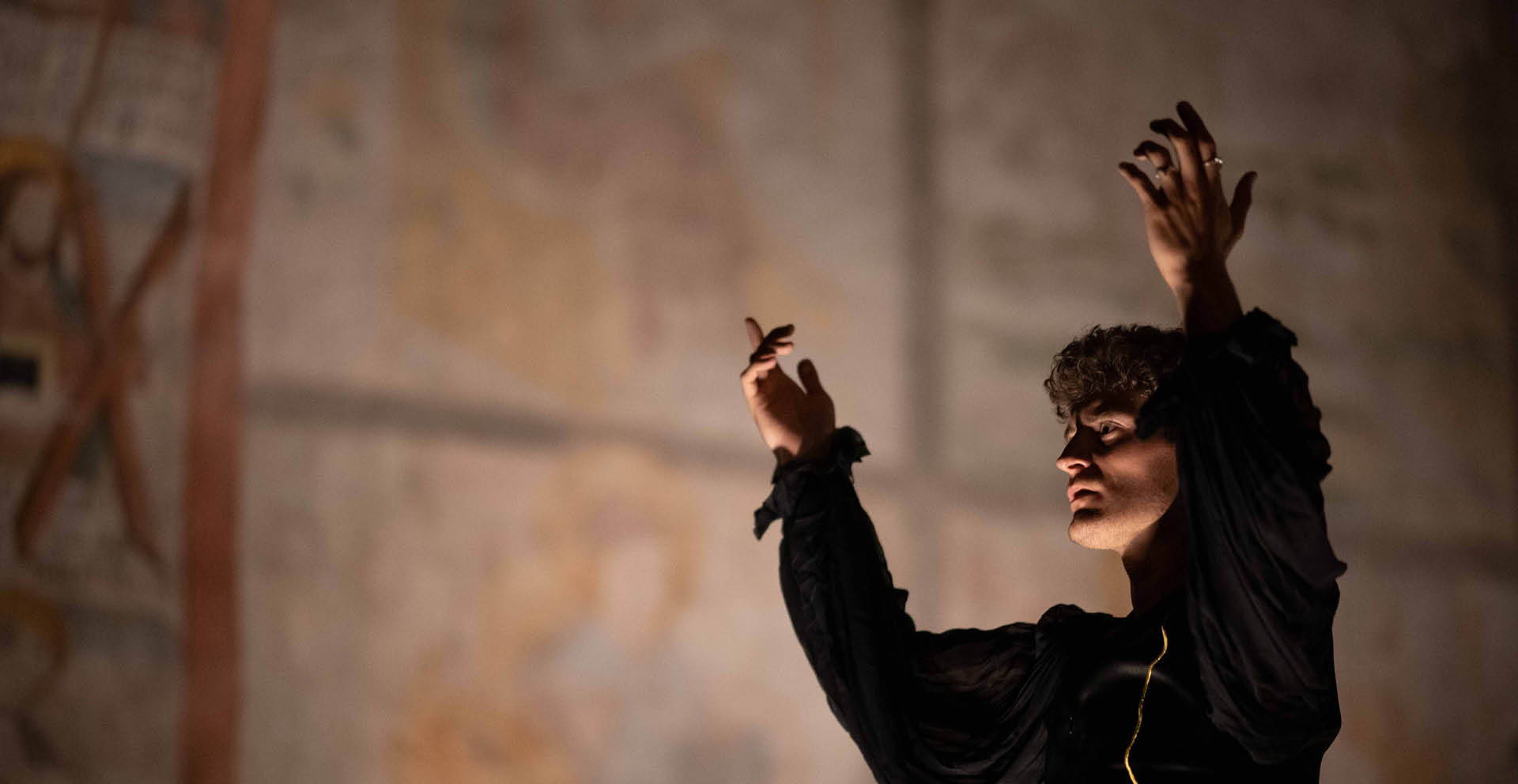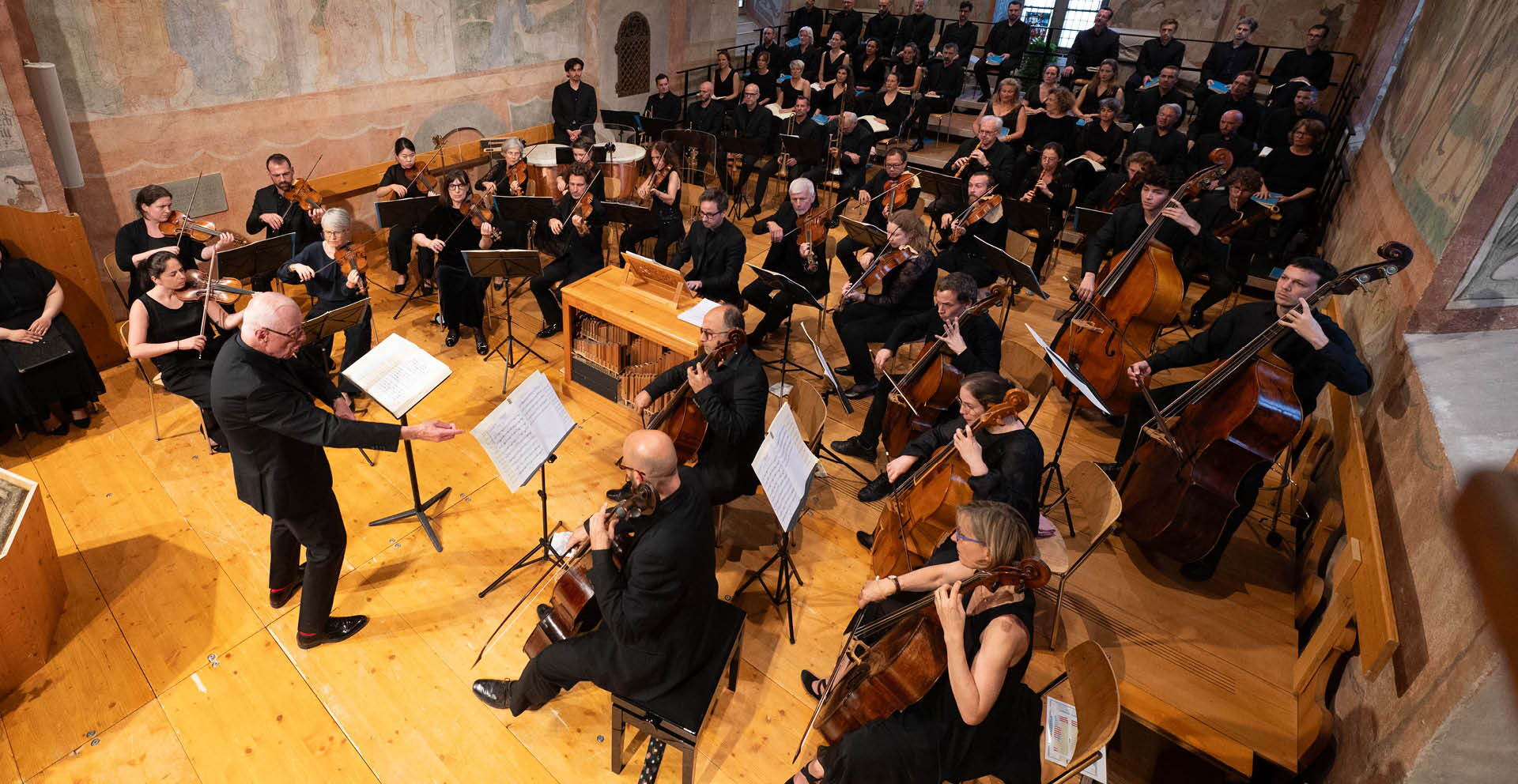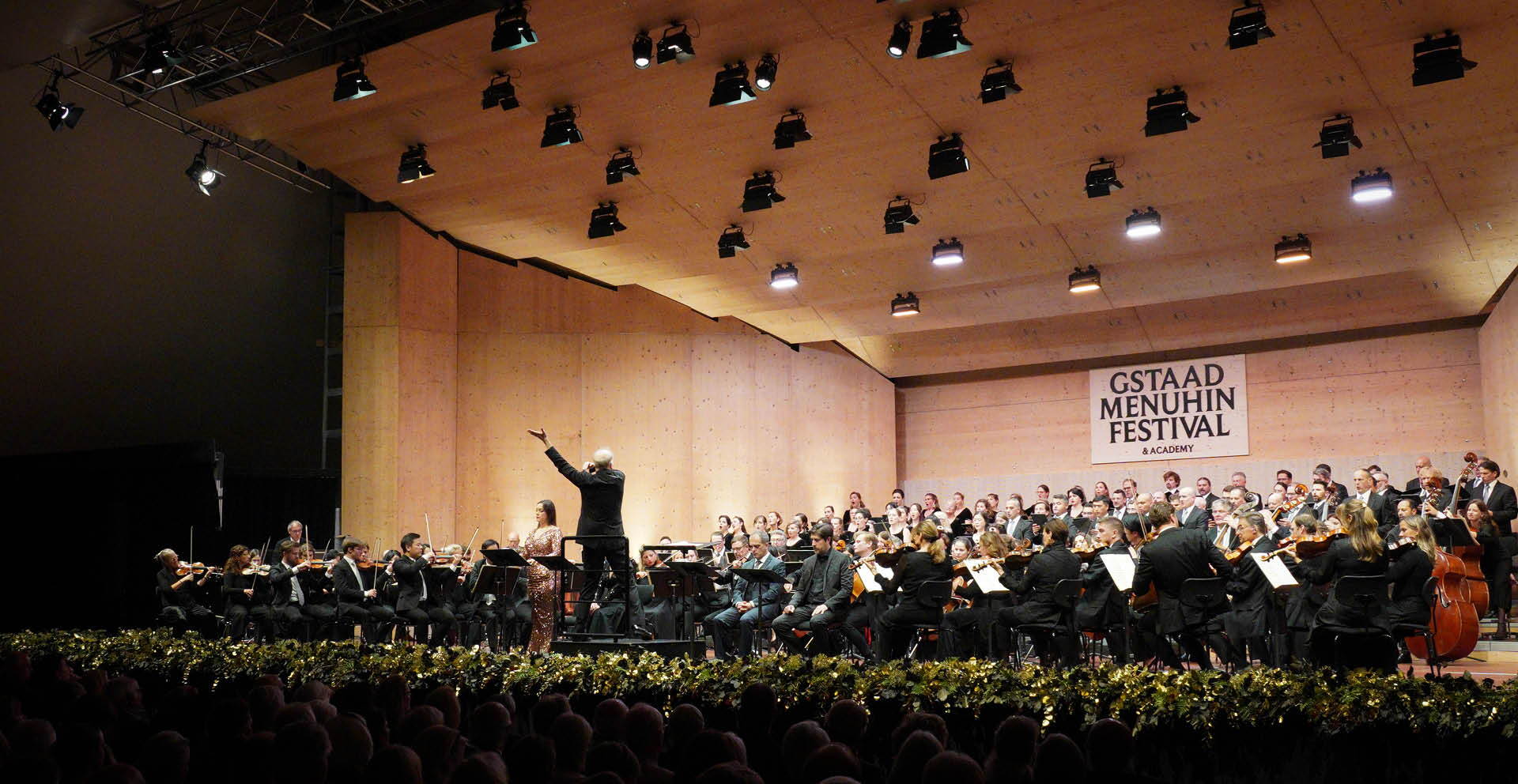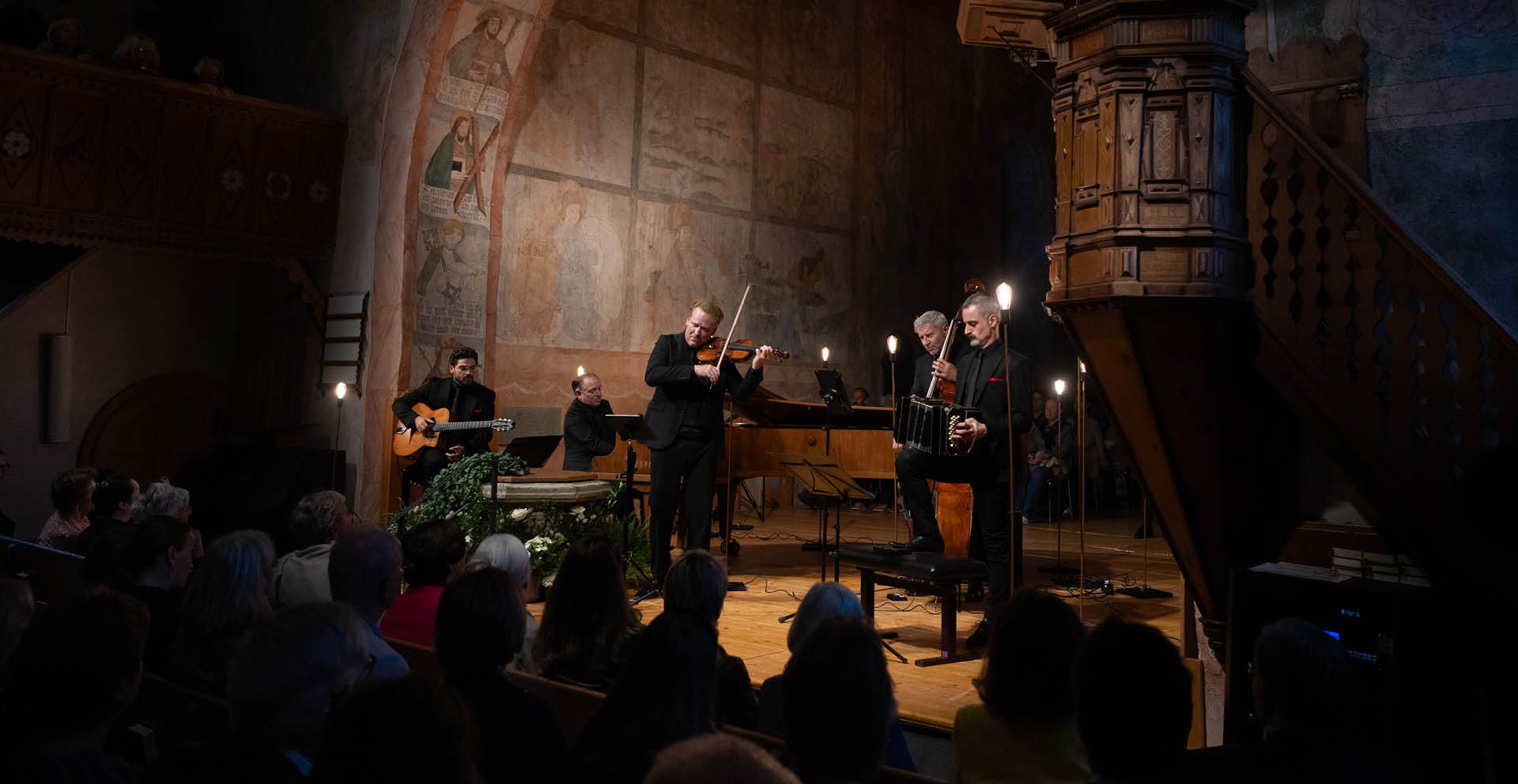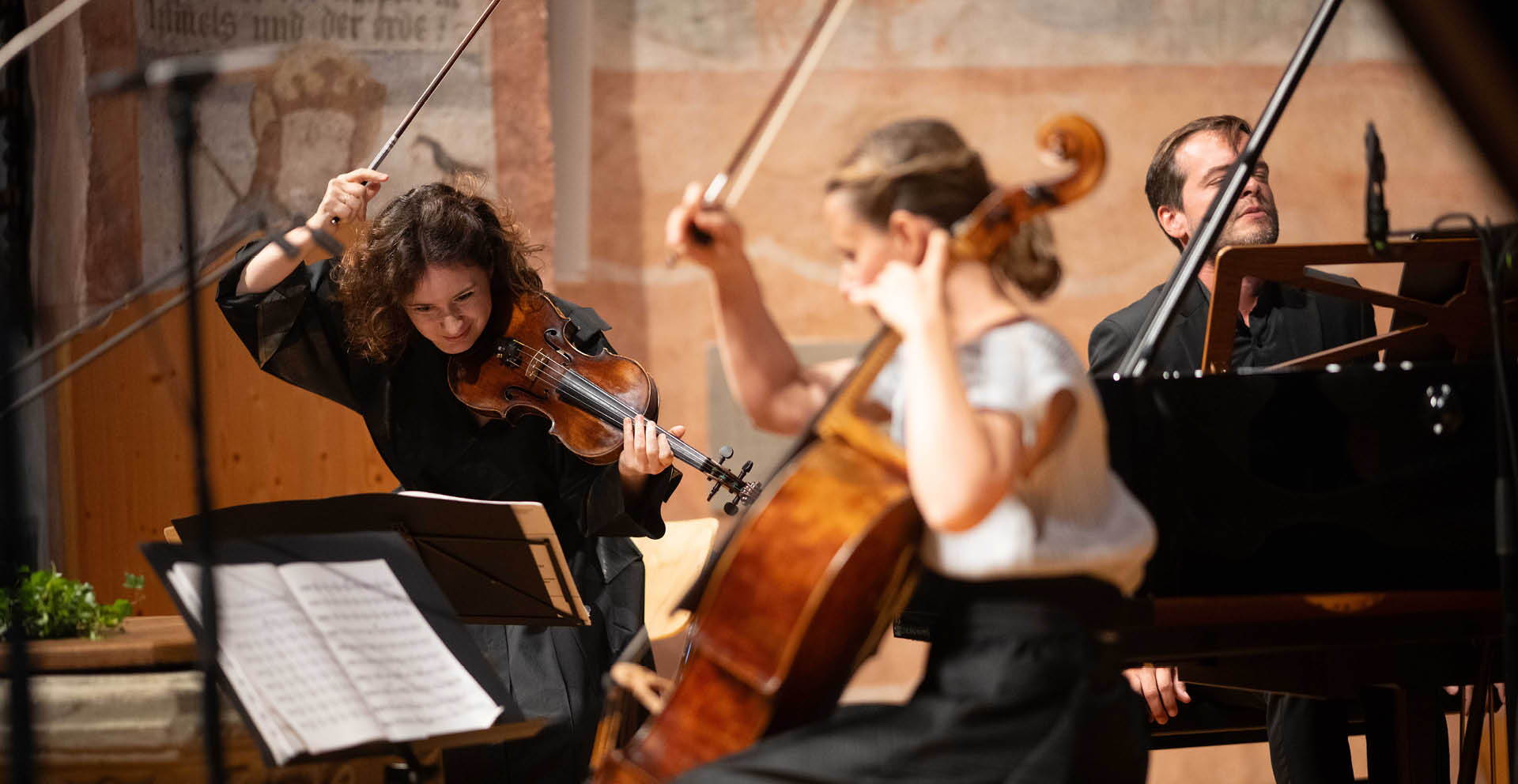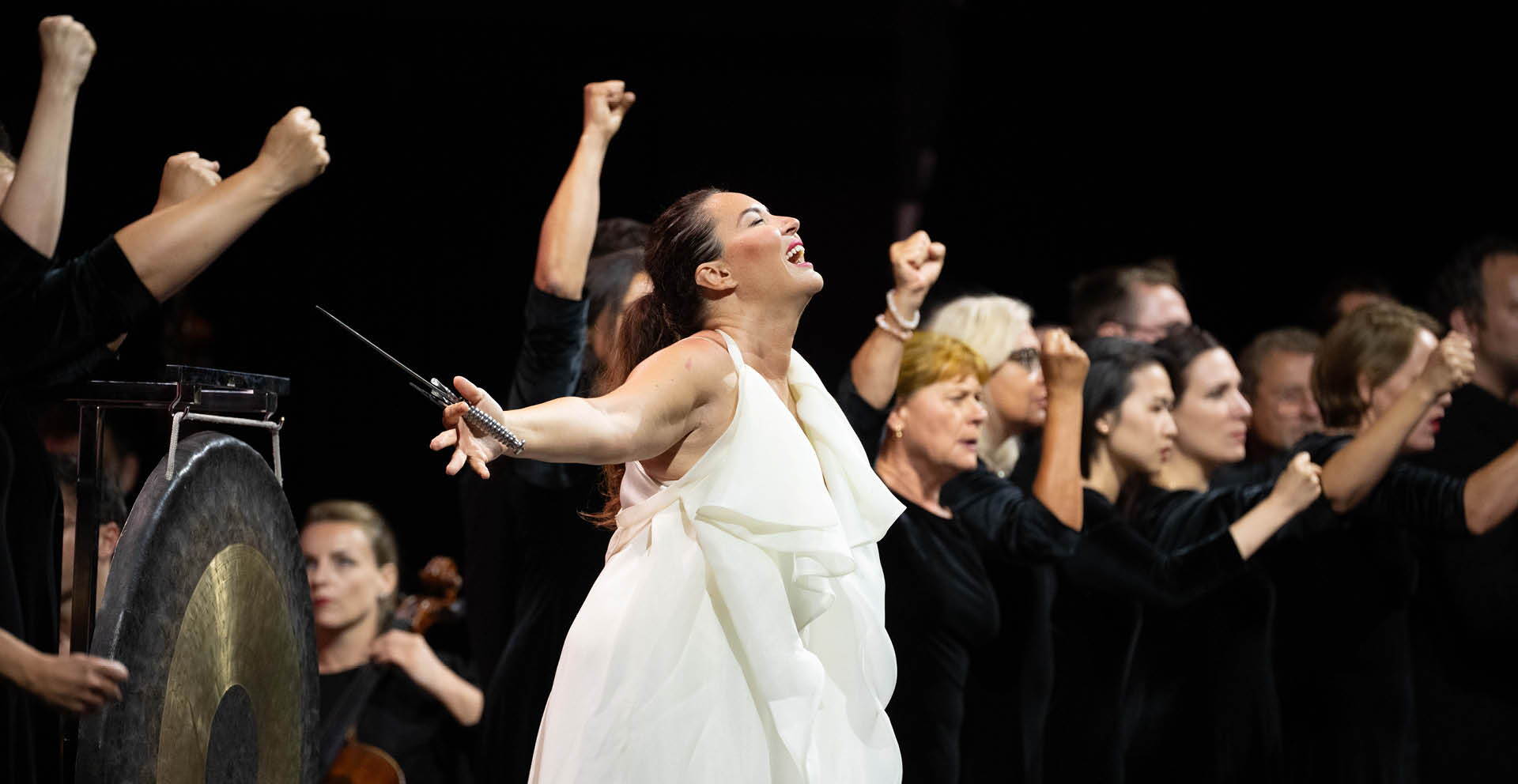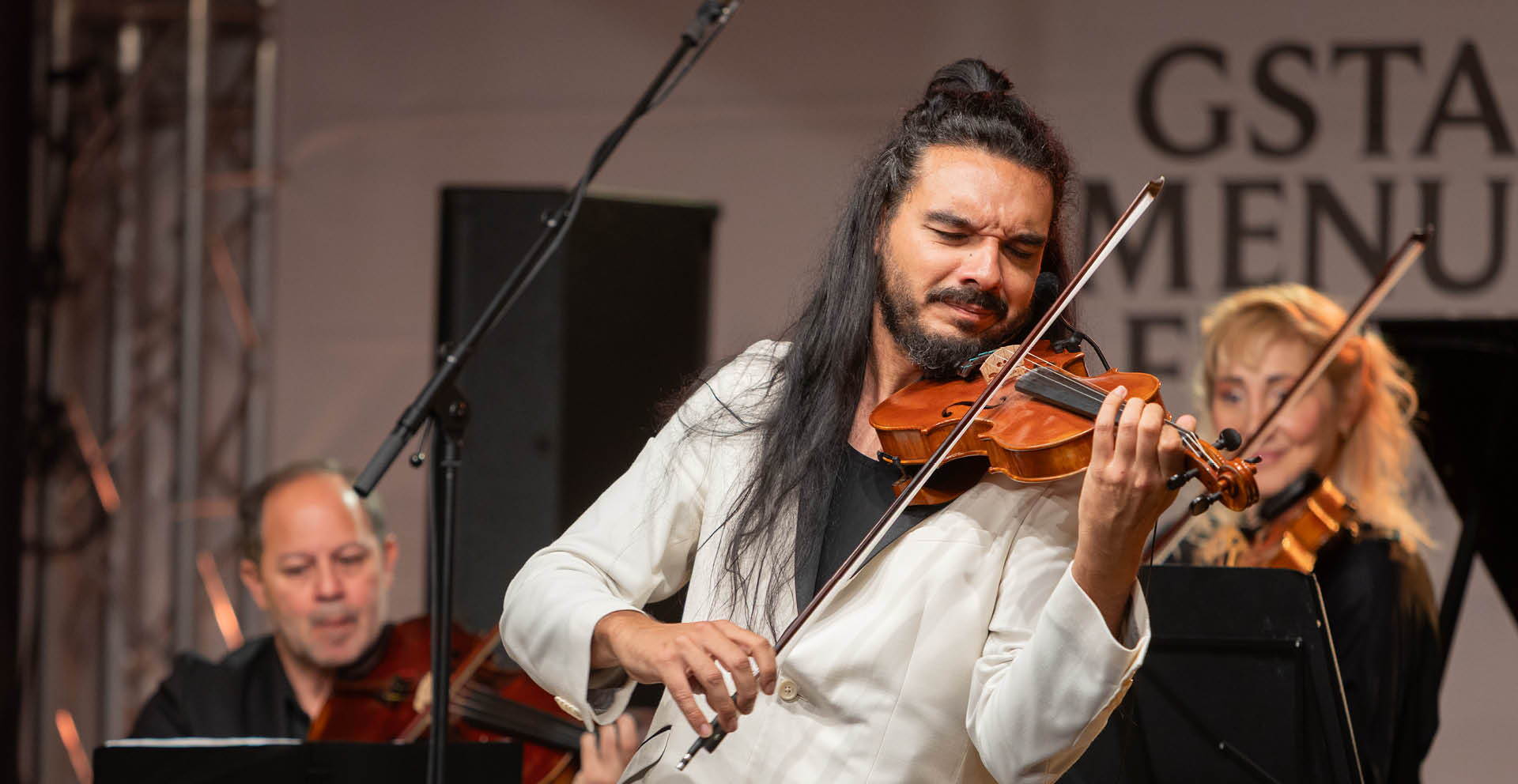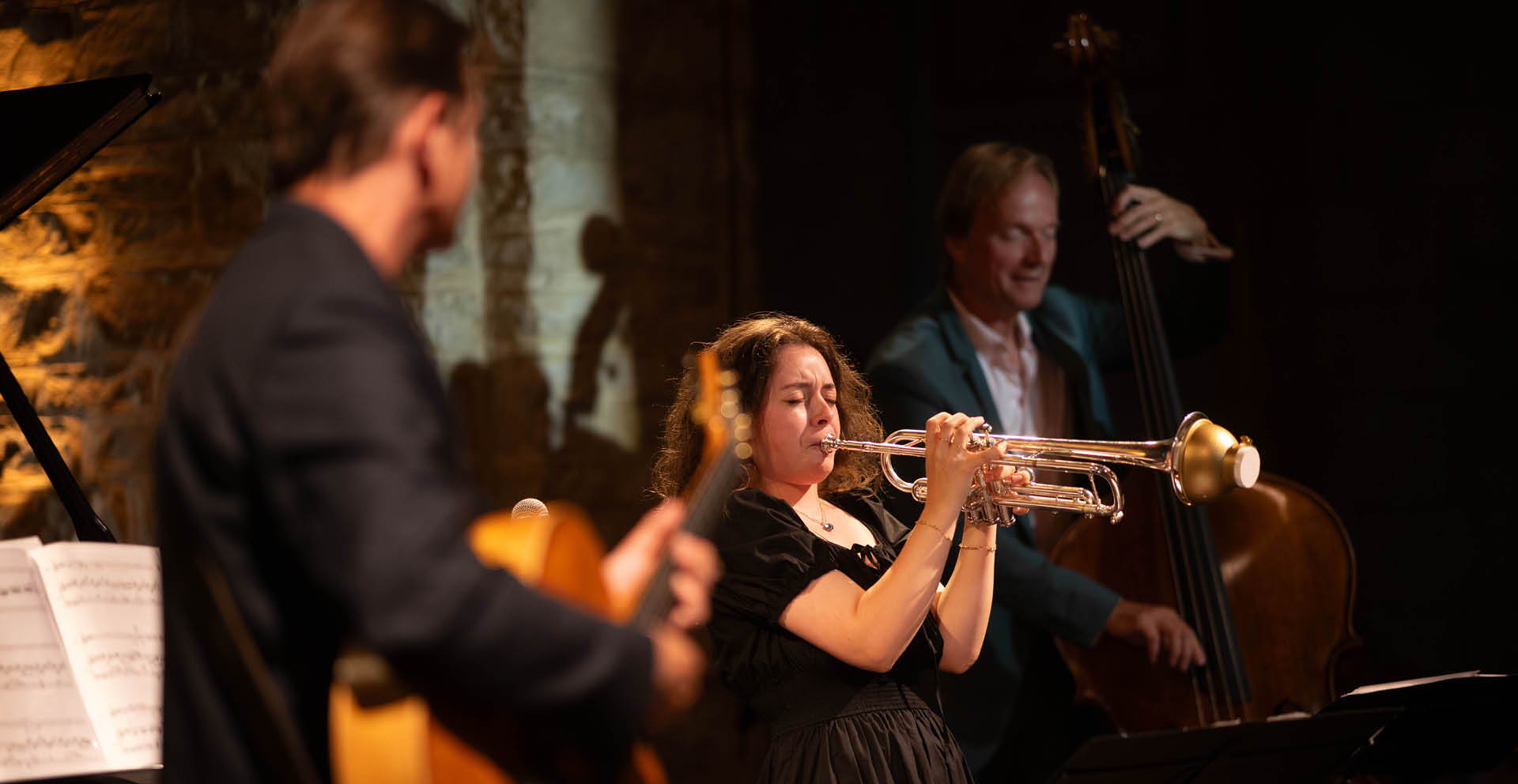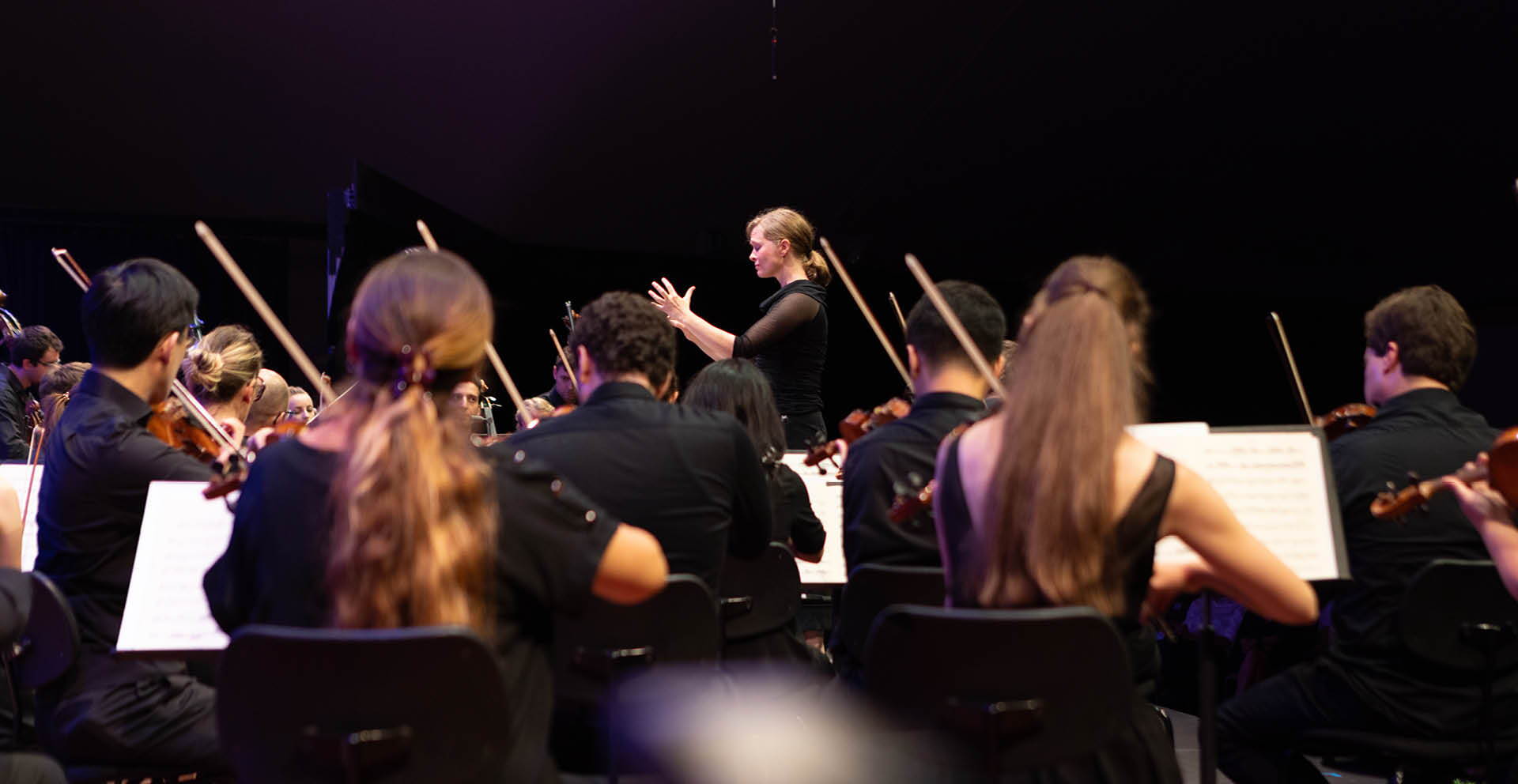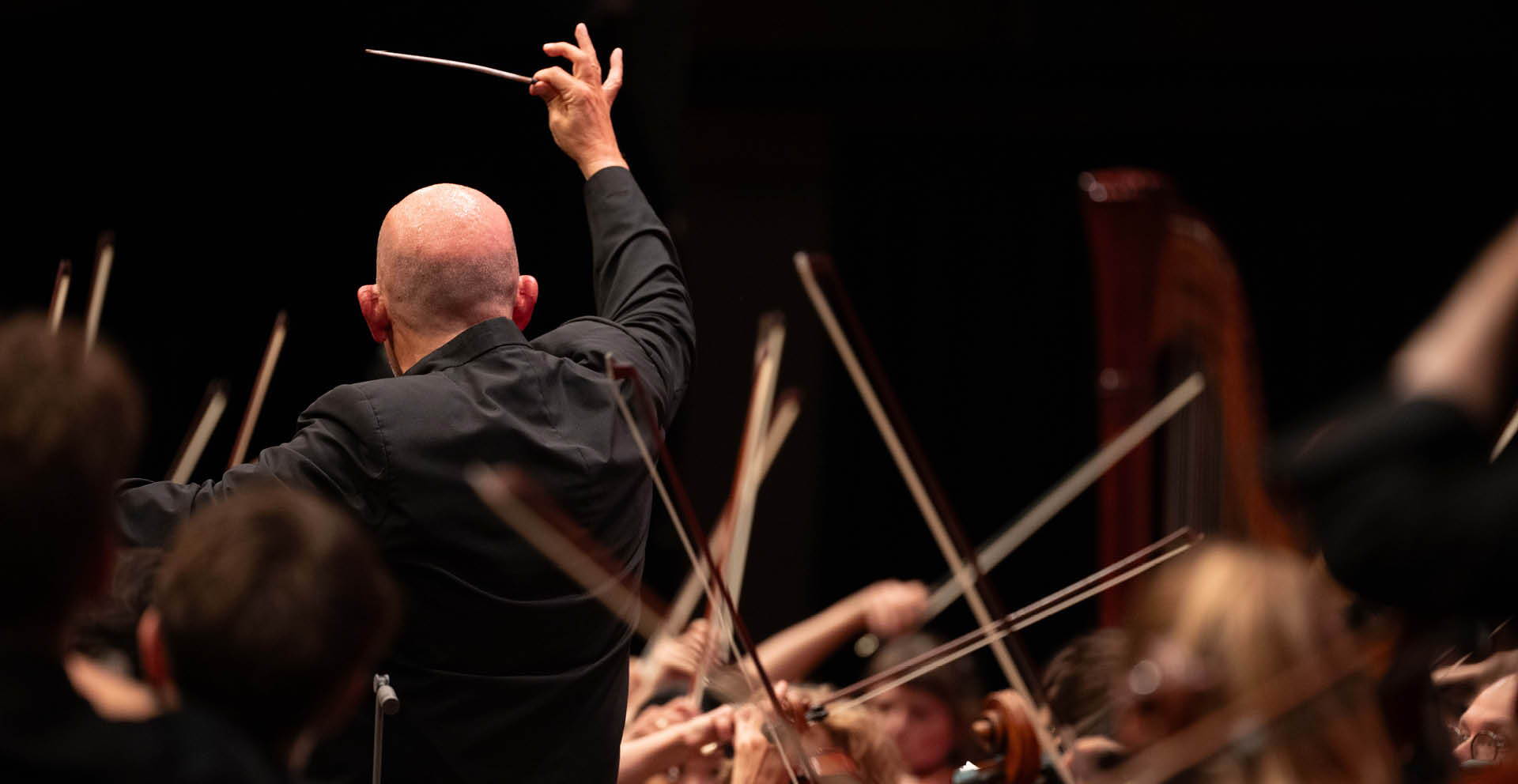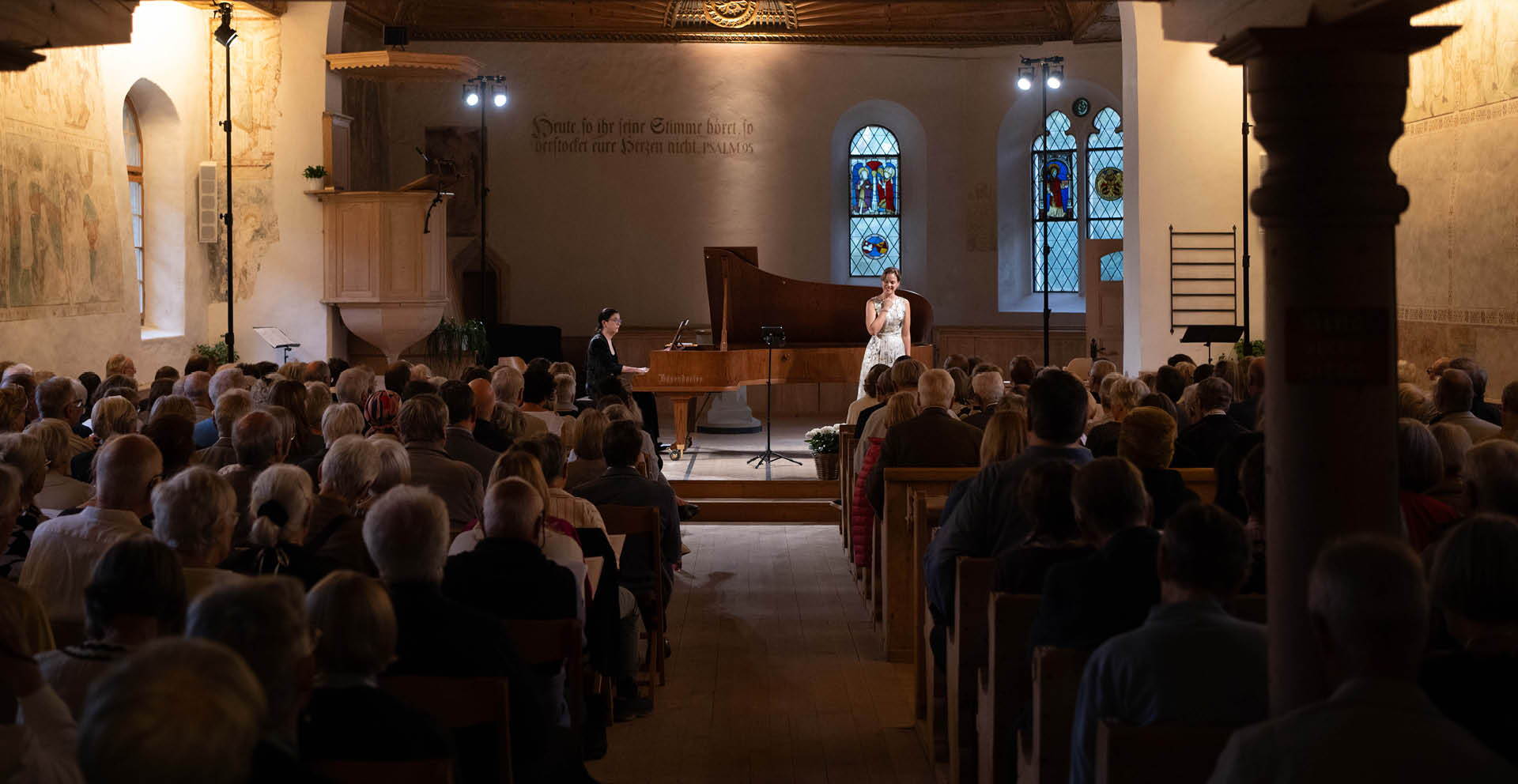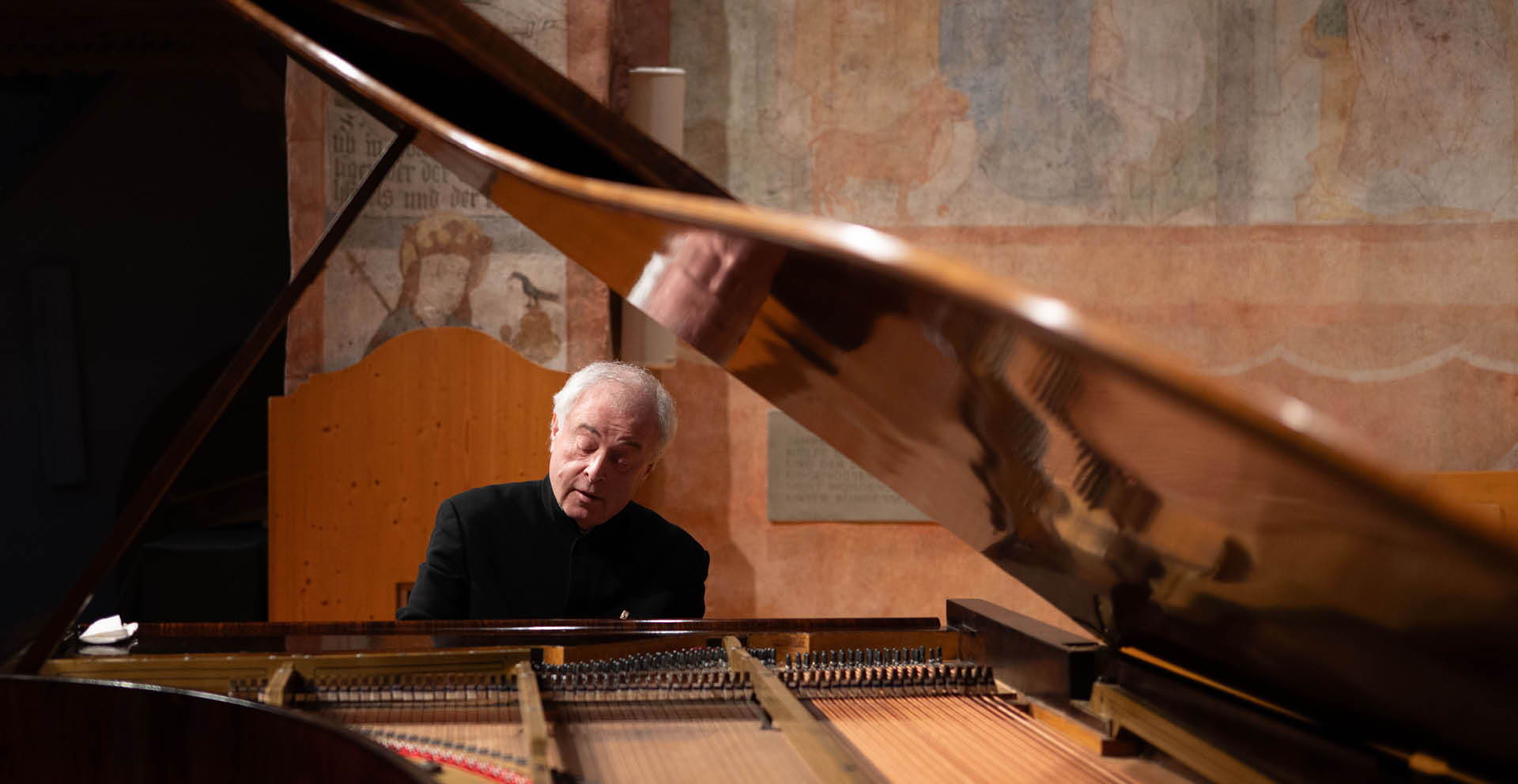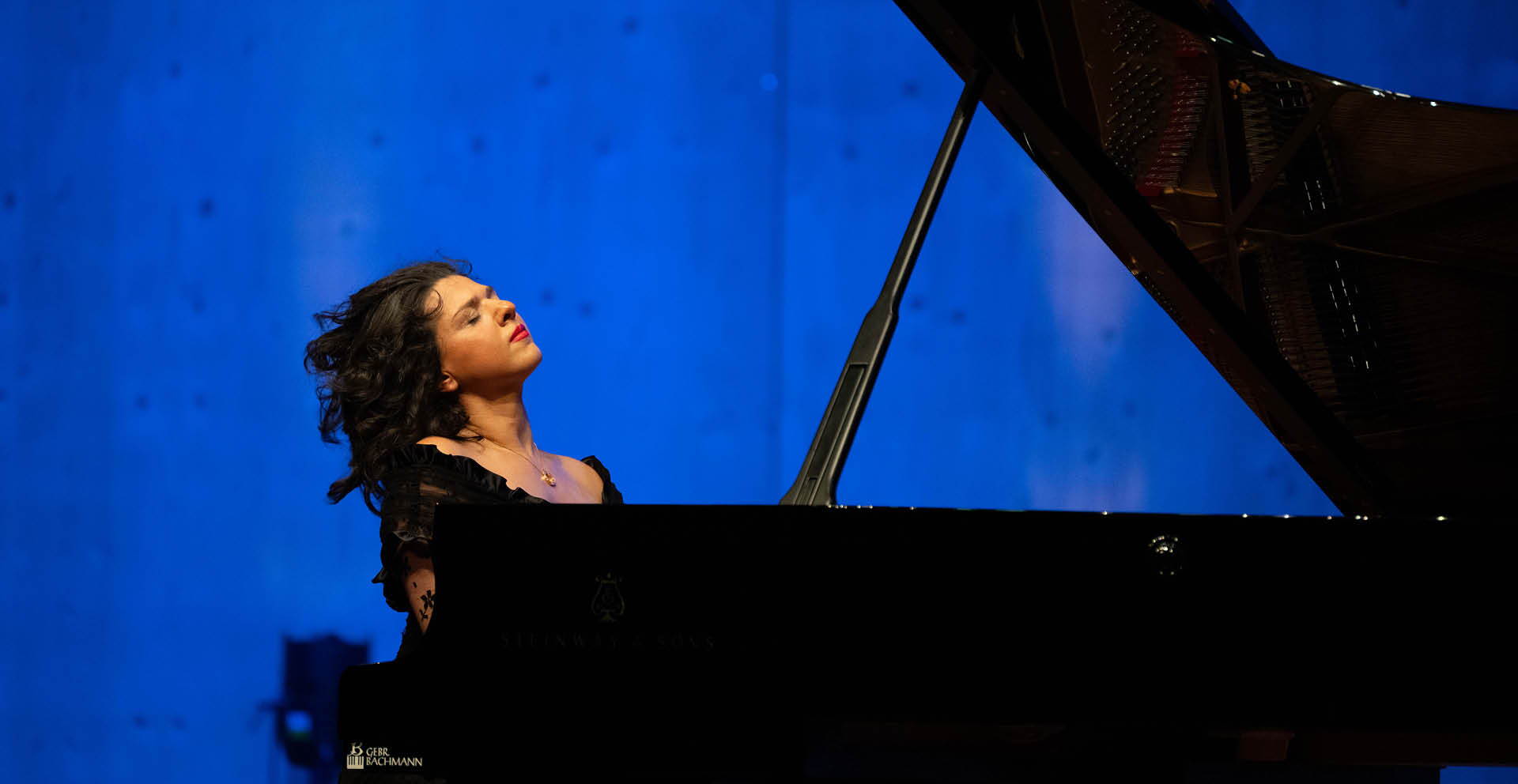The Gstaad Menuhin Festival & Academy Over the Years
Yehudi Menuhins Love of Gstaad
In 1957 Yehudi Menuhin and his family moved to Gstaad where he was fascinated and inspired by the elemental power of the region’s natural environment and commanding mountains. He was impressed not only by the Saanenland’s magnificent alpine arena, but also by the meeting of Western Switzerland, German-speaking culture, and the nearby South with its Italian lifestyle. Since Gstaad and its surrounding area also offered an ideal environment for an international education for his children (among others, the «Le Rosey» Institute and the International Kennedy School are based in the Saanenland), Menuhin settled with his family in the area. Walking in the mountains with his children, the city-dweller discovered the natural world of the native population, who were also to inspire Menuhin with their folklore and music.
Tradition and Innovation
The Gstaad Menuhin Festival & Academy Today: a Union of Tradition and Innovation
In the spirit of its founding father Yehudi Menuhin, Christoph Müller set new accents in his first year in 2002 and continued successfully to promote and develop the festival with an open and creative programme philosophy that made trendsetting projects and long-term development in specific artistic spheres possible.
The Gstaad Chamber Music Festival focuses on outstanding artists (Joshua Bell, Sabine Meyer, Alfred Brendel, Andras Schiff, Hélène Grimaud), who invite their musical friends and partners to Gstaad “to make music in a relaxed atmosphere”. (citation from Yehudi Menuhin)
The Symphony Orchestra Concerts in the Gstaad Festival Tent have brought symphonic brilliance back to Gstaad, including through close partnerships with orchestras such as the London Symphony Orchestra. The series “Today’s Music” promotes encounters between various music styles and cultures in the spirit of Yehudi Menuhin’s pivotal musical experiences, often surprising and unexpected. This cycle has earned widespread recognition with artists such as Bobby McFerrin, Nigel Kennedy or Swiss jazz legend George Gruntz since the 2002 edition. Moreover, a Musical Project for Children has become a tradition with the performance every year of a work that is taught and prepared in the schools in Saanenland and performed by some 30 to 50 children from the region. Works such as “Pollicino” by Hans-Werner Henze, “Brundibar” by Hans Krasa or “Carnival of the Animals” by Camille Saint-Saëns remain memorable.
A platform for enthusiastic amateurs was also established, the “Gstaad Festival Amateur Orchestra” series: in 2008 the festival presented for the first time an Orchestra Week for Amateur Musicians, during which participants could rehearse and perform in concert with leading musicians from an established symphony orchestra for seven days. In 2009 this amateur orchestra was supplemented with a corresponding Youth Orchestra Week with 60 to 70 musicians. The some 130 amateur and youth musicians profit in this project from the combination of active music making and concert attendance – in short, they participate in the festival life.
A Spontaneous Idea Becomes a Tradition
The roots of the Gstaad Menuhin Festival go back to the year 1956 when Paul Valentin, the director of tourism at the time, asked Yehudi Menuhin if he would be willing to enhance the summer season with some concerts. Menuhin immediately took to the idea and rang in the birth of the festival only one year later in the Mauritius Church in Saanen. Four musicians came together for “Two Exclusive Concerts” on 4 and 6 August 1957. The four legendary musicians were: Maurice Gendron, cello, Benjamin Britten, piano and harpsichord, Peter Pears, tenor, and Yehudi Menuhin, of course. From then on the summer concerts in the Saanenland came to be called the «Yehudi-Menuhin-Musiksommer». The two events become nine, mainly chamber music concerts and concerts with chamber orchestras, and from 1958 on the famous Zurich Chamber Orchestra under the direction of Edmond de Stoutz also took part. From the beginning the festival was strongly inspired by Menuhin’s intense relationship and interaction with the alpine splendour of the Bernese Oberland. Menuhin’s family (for example, Yehudi’s sisters Hephzibah and Yaltah or his son Jeremy) and friends (including Ernst and Lory Wallfisch, Louis Kentner and Peter Lukas Graf) contributed to the success of the unforgettable chamber music evenings in the beautiful church of Saanen. The spirit of making music with friends would become the festival’s Leitmotif.
The Festival Grows
The structure of the festival became ever more complex. In 1976 a new organisation committee was established to oversee the handling of administrative tasks. In 1977 Menuhin created an important basis for the promotion of young elite musicians with the foundation of the International Menuhin Music Academy (IMMA) and «The Yehudi Menuhin School» in London. Alberto Lysy was the IMMA’s first director (Jeremy Menuhin assumed the musical direction at the end of 2007). The Academy’s Orchestra, the Camerata Lysy Gstaad (as of 2009: Camerata Menuhin), became a central pillar of the Festival. Meanwhile, the event had grown to include 18 concerts.
In his creative work, Menuhin stressed still more intensively the symbiosis of art and landscape. Musical high points included a concert for Ernest Bloch’s 100th birthday, a homage to Benjamin Britten (with a performance of his third string quartet) and a memorial concert marking the fortieth anniversary of Bela Bartók’s visit to Gstaad.
The Introduction of Symphony Concerts in 1989
The Gstaad Menuhin Festival acquisition of the Alpengala AG and above all its Festival Tent toward the end of the 1980’s made it possible now to bring large symphony orchestras to Saanenland. The Gstaad Menuhin Festival thereby was transformed from a chamber music celebration to one of the largest festivals in Switzerland, and Yehudi Menuhin also thus acquired regular opportunity to exercise his increasing interest as a conductor at his adopted home. The first festival tent was replaced by a new concert tent that was conceived and constructed according to the most modern technical and acoustical standards.
1996: Anniversary and Upheaval
At the age of 80 and after 40 years of artistic activities in Gstaad Yehudi Menuhin decided to pass on the direction of the festival to younger hands. Latvian violinist Gidon Kremer, well known for his penetrating interpretations of classical and contemporary works, was to give the Alpine festival new impulses and lead it into the 21st century. It soon became apparent, however, that the public and the festival’s partners were not equally enthusiastic about the new personal and artistic orientation – Gidon Kremer’s artistic goals were not congruous with the previous four decades marked by Yehudi Menuhin.
The Turbulent Period after Menuhin
Following Gidon Kremer’s retirement, the artistic directorship of the Festival was taken over by Peter Keller followed by Yehudi Menuhin’s former collaborator, musicologist Eleanor Hope. After Menuhin’s death in 1999, she carried on his heritage through a wide-ranging programme, with a continual emphasis on the natural mountainous environment of the Saanenland holiday region. As during Menuhin’s years, the main emphasis of the festival in the region of Gstaad continued to be placed on classical chamber music and symphonic works supplemented by contemporary music. Eleanor Hope succeeded in attracting the Festival’s family (regular attendees, soloists, ensembles, conductors and orchestras) back to Gstaad and thus stabilizing the festival. In 2002 the festival’s direction came to a bold, pathbreaking decision: the festival was no longer to be led by an outstanding, internationally famous artist, but by an artistic manager who would be capable of promoting the festival’s development without neglecting the economic and regional resources and conditions. The festival’s direction found appropriate person in Christoph Müller, a young musician and artistic manager from Basel. Müller’s success as manager of the Basel Chamber Orchestra, his candor and curiosity, as well as the fact that as a newcomer he could tackle the future development of the festival without previous burden or bias, all spoke for him.
Programme Pillars
Chamber Music: The heart of the Gstaad Menuhin Festival: top-class chamber music concerts in the impressively beautiful and acoustically outstanding churches of the Saanenland.
Choral / Opera / Choir: World-class orchestras in large symphonic ensembles play in the festive atmosphere of the Gstaad Festival Tent.
Today's Music: Concerts with an unconventional character. Other musical styles or performance forms mix up concert and listening habits. No boundaries.
Extra Music: Concerts in unusual places: open-air, on alps, mountain houses, etc.
L'Heure Bleue- Concert for all: The students of the Academies present themselves to the audience. Always 5.30 pm, 1 hour without a break. The hour of encounters and discoveries. The addition "Concert for All" already implies that the concerts in this series are intended for listeners of all kinds - whether experienced concertgoers, newcomers to classical music, young or old. And the format is also ideally suited for families, because they can come and go during the concert. For all concerts in the series "L'Heure Bleue - Concert for All: admission with collection.
Menuhin's Heritage Artists: The Festival awards the title of "Menuhin's Heritage Artist" to proven young artists. As such, they are invited to the festival annually for a period of 5 years and are given the opportunity to present themselves to the audience in various forms.
Matinée des Jeunes Étoiles: The hour of discoveries: Always on Saturdays in the Gstaad Chapel, 1 hour without intermission. Young prize-winners of international competitions present themselves to the festival audience for the first time.
Discovery : Varied offers for children and young people.
Gstaad Academy: Daily public master classes. Great musical personalities teach young, promising talents. For curious and inquisitive listeners.
Gstaad Conducting Academy: public master class for conductorswith Prof. Jaap van Zweden and Johannes Schlaefli.
Gstaad String Academy: public master class for strings with Rainer Schmidt (Violin), Ettore Causa (Viola), Ivan Monighetti (Violoncello).
Gstaad Vocal Academy: public master class for vocalists with Prof. Silvana Bazzoni Bartoli.
Gstaad Piano Academy: public master class for pianists with Sir András Schiff
Gstaad Festival Youth Orchestra: orchestra weeks for young musicians.
Gstaad Festival Amateur Orchestra: orchestra weeks for amateur musicians.
Gstaad Festival Orchestra: Symphony orchestra initiated by the Gstaad Menuhin Festival & Academy with the goal of creating exceptional programmes and projects. After each programme premiere in Gstaad the orchestra performs at international locations and thus as an ambassador for the festival as well as for the region of Gstaad. Conductor: Jaap van Zweden (principal conductor).

